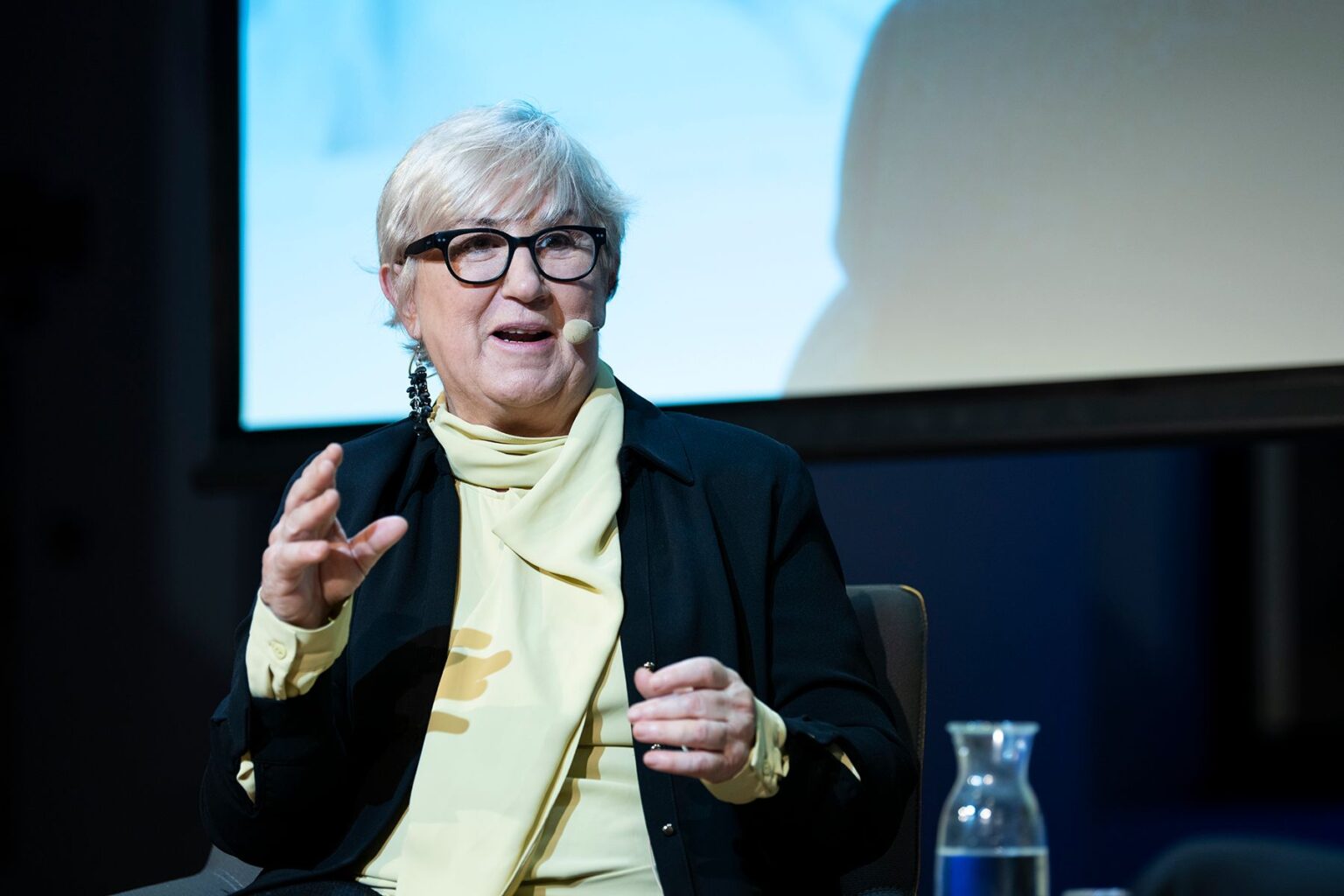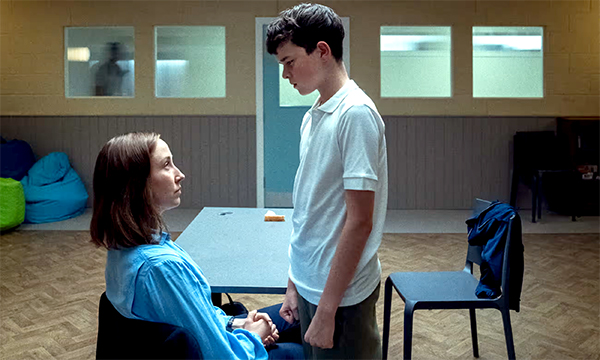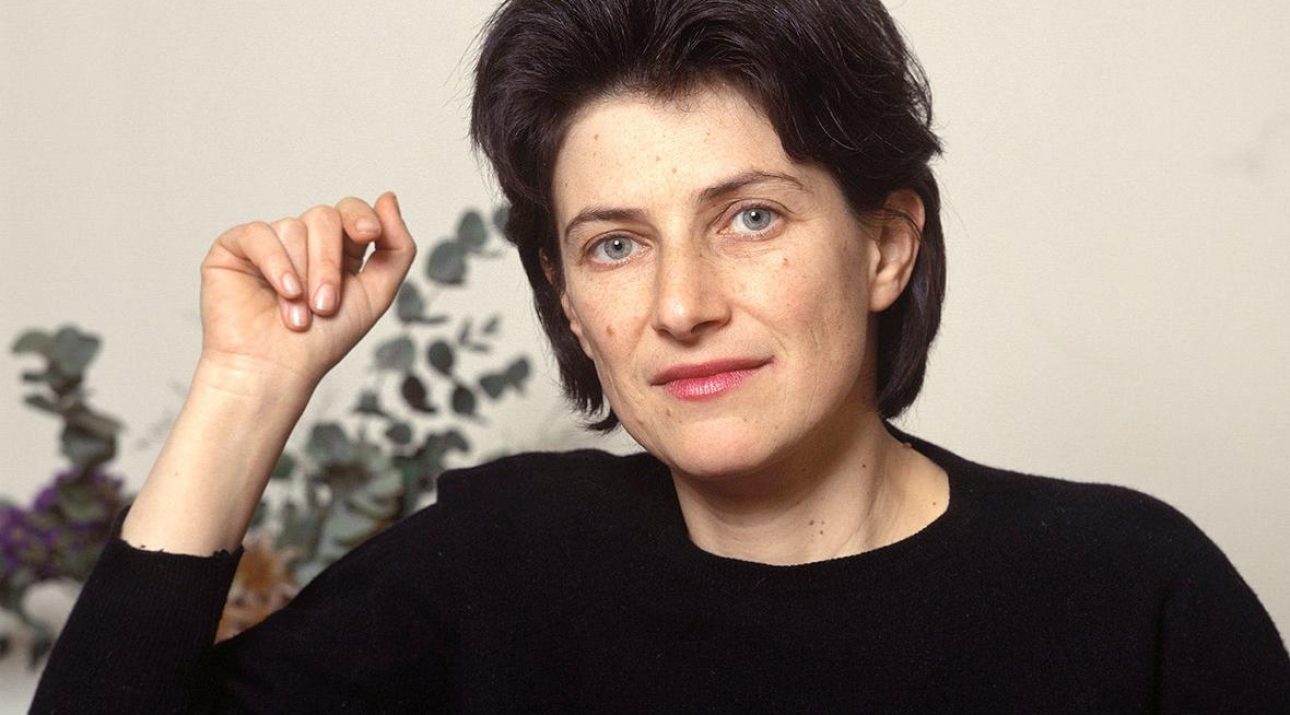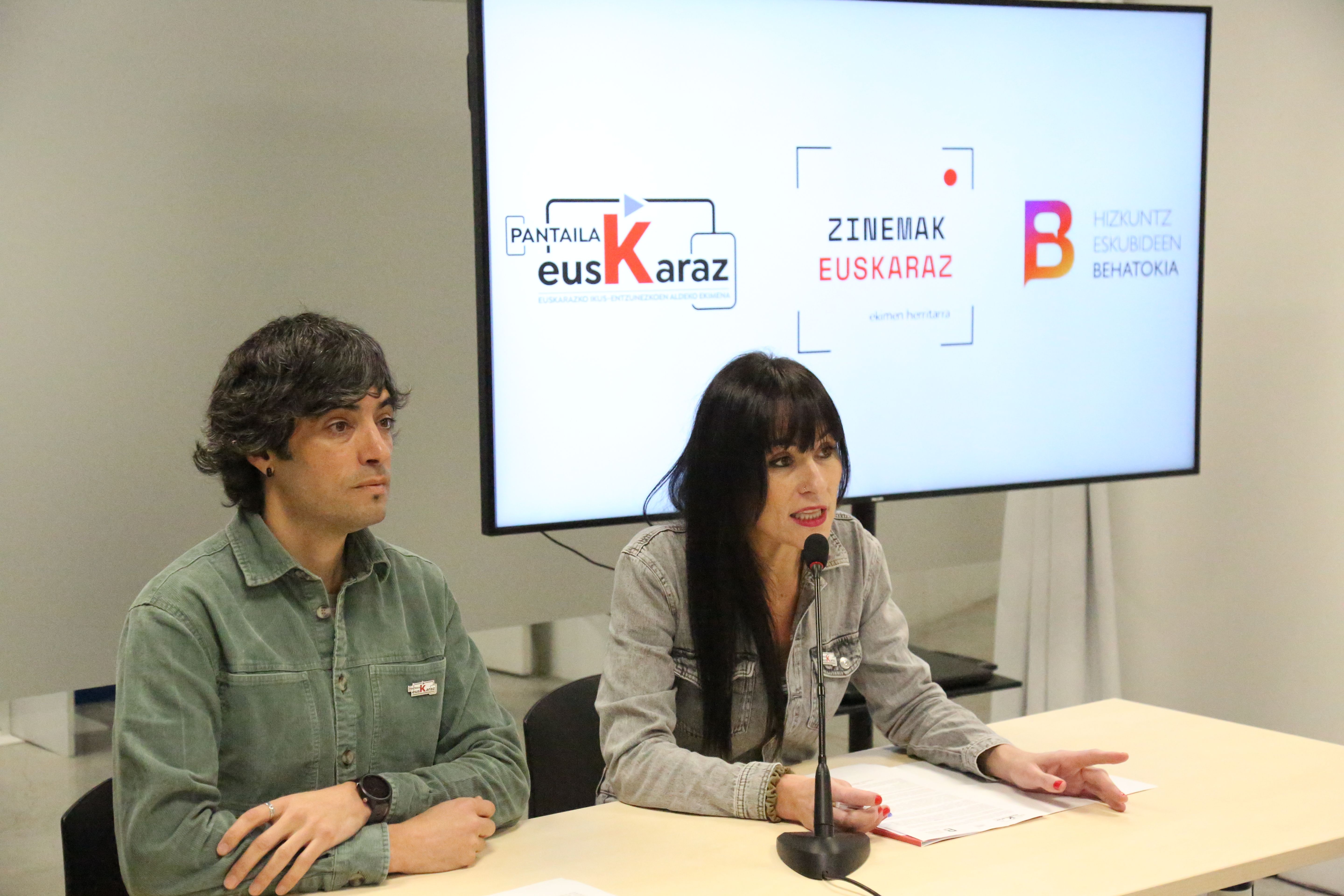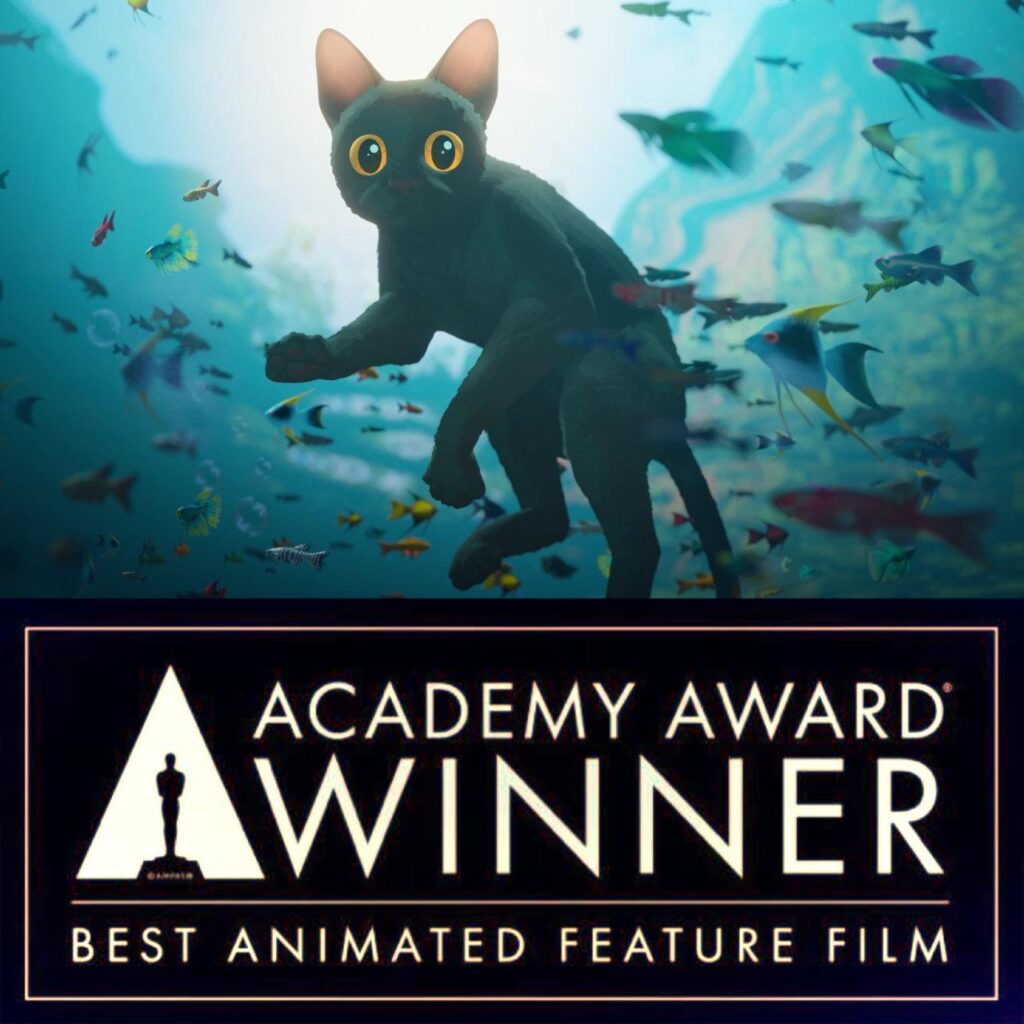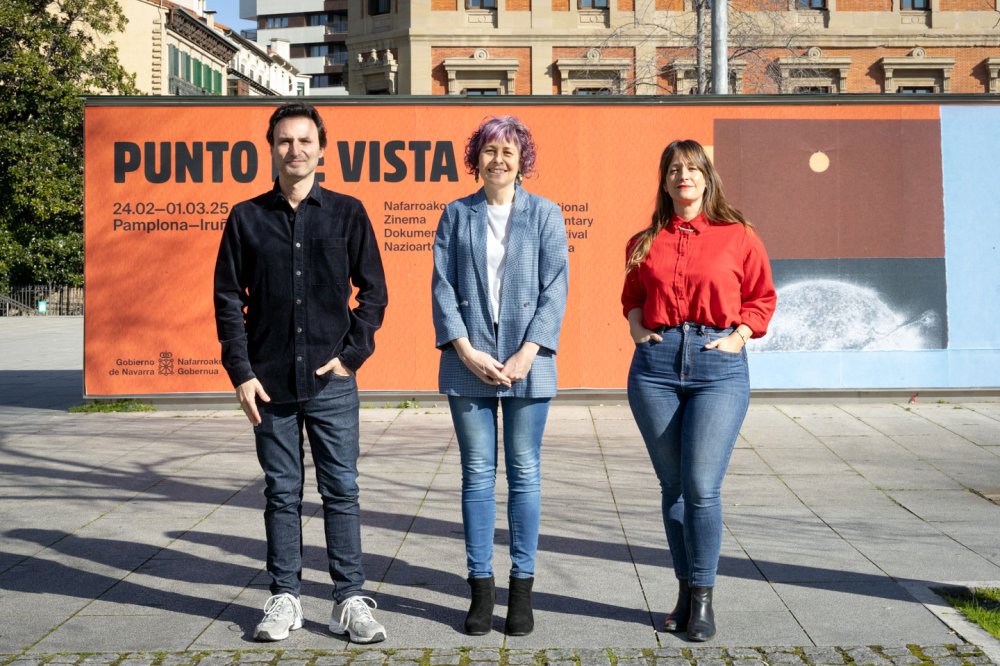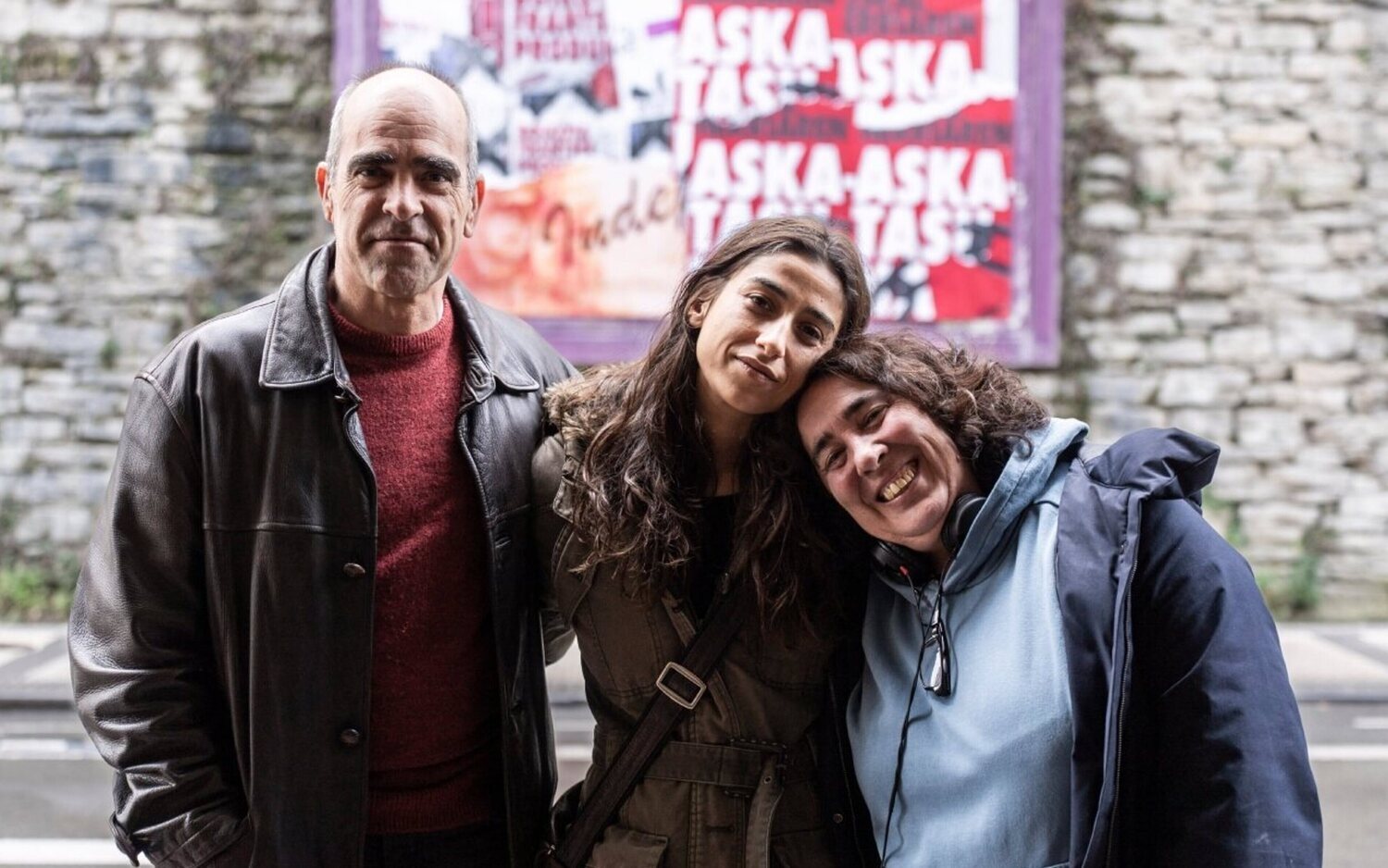A film shot in 3D 80 years ago found in the Basque Country
- The filmmaker and researcher from Bilbao, Josu Martínez, has discovered the film that director René Le Henaff shot in the Basque Country to experiment with the three-dimensional technique. Four Euskadi film screenings will take place in March in Bilbao, Pamplona, San Sebastian and Bayonne.

Many will not even know that 80 years ago they made three-dimensional films. Few were made, in fact: 3Daren was a failed attempt in the 1930s, compared to more successful technical advances in cinema, such as sound or color. However, now that it has been discovered, among the experiments that were carried out, the Basque Country has its place.
Let's go to 1936: Director René Le Hennaff recorded a folkloric production called Euskadi, in which you can see the streets of Bayonne and Biarritz, showing more recent themes such as tourism, as well as the romantic image of the Basque Country at that time.
The 'Basque Country' is a demonstration of the relief that Louis Lumière has been trying to bring to the films for years
“It’s impressionable,” Josu Martínez explains when we asked him what he felt when he saw the film. The film will be screened for the first time in the Basque Country, 81 years after its premiere in Paris.
The discovery will be announced this Wednesday in Bilbao by Martínez himself, Bea Narbaiza of the Nor research group of the UPV/EHU, the Vice-Rector of the Bizkaia campus of the UPV/EHU, Patxi Juaristi and the coordinator of the Loraldia Cultural Association, Mikeldi Uribe Etxebarria.
Trying to spark the new technique
Although it cannot be fully confirmed, it seems that Le Henaff made the Basque Country on request. The inventor of the cinematographer, Louis Lumière, who had already advanced in age, had been trying for years to bring relief to films, Martínez explained. And the Basque Country is a demonstration of this relief: its objective was to extract the “txispas” from the innovative technique and for this reason, it constantly plays with the depth of field.
Le Henaff was an industry director, having worked as an editor, a young promise and who in subsequent years became difficult to make secondary commercial films, directing popular actors such as Fernandel. In the 1930s and 1940s he worked tirelessly, but there are no great traces of his career since then, Martínez says.
It is also a pity that he died not long ago, in 2005, at the age of 105, without the possibility of giving an explanation about the film now found.
Rescuing Gems from the Archives
This is not the first discovery of its kind by Martinez. The discovery of André Madré’s documentary Nuestra Sor Lugar and the intricate process of searching for it, later narrated by Martínez himself in the documentary Nuestra Sor Lugar, was the sounding.
The film will be screened in Pamplona, Bilbao, San Sebastian and Bayonne during the month of March
He says that the new discovery presented this Wednesday cannot be compared to him: “This is not going to be one of the biggest films of our cinema.” In any case, he points out that there is a continuity between the most important moments in the history of cinema and its filming in the Basque Country: “The Lumière brothers recorded it in Biarritz and the first French sound film also took root here, perhaps because it is a place that seems exotic to them without going far.”
As for Euskadi, Martínez had few references and pulled one of them, from José María Unsain’s book El cine y los vascos. He said that Le Henaffena was a three-dimensional film; indeed, Unsain had spoken to the French director in 1983, although he could not give him much clue to find the film.
“I started looking for Paris and found the reference in the files of the producer Pathé,” he explains. They kept a copy of the nitrate film. From there, the incidents began: the production company does not cede this type of film as a legacy, it performs its commercial management, and it was proposed to rent the film.
Martínez, “cheating a little” on the product, managed to extract the original from the archives and digitize it. When he saw what it was, he spoke to the institutions and Loraldia came into play: for a month’s rent, the film will be screened at the Basque culture festival in Bilbao on 15 March. The date is in the Alhóndiga de Bilbao and Martínez’s explanations will accompany this premiere.
Previously, it can be seen on March 11 at the Punto de Vista festival in Pamplona; and, accompanied by the Filmoteca Vasca, they have organized a performance at the Tabakalera in San Sebastián (March 23), as well as at the Atalante cinema in Bayonne (March 24), in this case with the support of EKE.
No other land dokumentalaren zuzendari Hamdan Ballal kolono sionistek jipoitu zuten astelehenean bere herrian, beste hainbat palestinarrekin batera, eta Israelgo militarrek eraman zuten atxilo ondoren. Astarte goizean askatu dute.
Donostiako Tabakaleran, beste urte batez, hitza eta irudia elkar nahasi eta lotu dituzte Zinea eta literatura jardunaldietan. Aurten, Chantal Akerman zinegile belgikarraren obra izan dute aztergai; haren film bana hautatu eta aztertu dute Itxaro Bordak, Karmele Jaiok eta Danele... [+]
35 film aurkeztu dira lehiaketara eta zortzi aukeratu dituzte ikusgai egoteko Euskal Herriko 51 udalerritan. Euskarazko lanak egiten dituzten sortzaileak eta haiek ekoitzitako film laburrak ezagutaraztea da helburua. Taupa mugimenduak antolatzen du ekimena.
Pantailak Euskarazek eta Hizkuntz Eskubideen Behatokiak aurkeztu dituzte datu "kezkagarriak". Euskaraz eskaini diren estreinaldi kopurua ez dela %1,6ra iritsi ondorioztatu dute. Erakunde publikoei eskatu diete "herritar guztien hizkuntza eskubideak" zinemetan ere... [+]
Geroz eta ekoizpen gehiagok baliatzen dituzte teknologia berriak, izan plano orokor eta jendetsuak figurante bidez egitea aurrezteko, izan efektu bereziak are azkarrago egiteko. Azken urtean, dena den, Euskal Herriko zine-aretoak gehien bete dituztenetako bi pelikulek adimen... [+]
Otsailaren 24tik eta martxoaren 1era bitartean, astebetez 60 lan proiektatuko dituzte Punto de Vista zinema dokumentalaren jaialdian. Hamar film luze eta zazpi labur lehiatuko dira Sail Ofizialean; tartean mundu mailako lau estreinaldi eta Maddi Barber eta Marina Lameiro... [+]
A conference for architects has just been held in Madrid to discuss the crisis of the professional architect. They have distinguished the traditional and contemporary way of being an architect. What is traditional? From the epic architect who appears in The Brutalist, where... [+]









